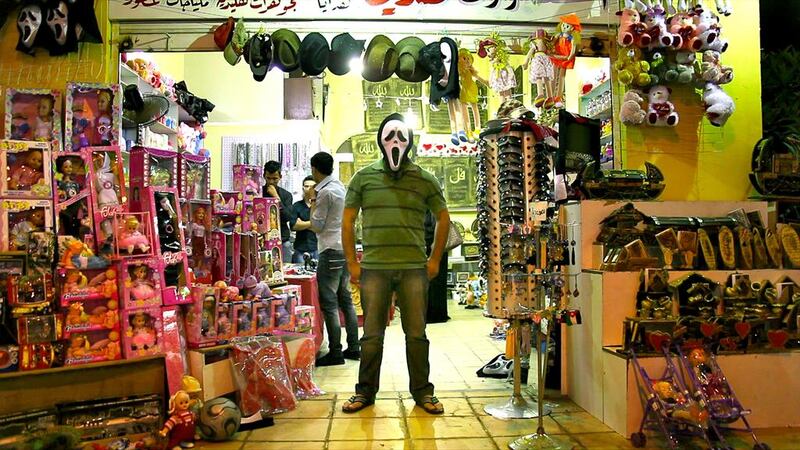When Dalia Al Kury was growing up in Kuwait and Jordan in the 1980s and early 1990s, she was petrified of the djinn, the supernatural creatures mentioned in the Quran that have the power to possess humans.
Making her new documentary Possessed by Djinn, which is debuting at the prestigious Hot Docs festival in Toronto, rekindled some of those old memories.
“I haven’t thought about the djinn for years and years, since I was a teenager,” she says. “Then suddenly, when I started thinking about it again, I thought this caused me a lot of trouble when I was a child.
“I was always afraid of the dark. I used to believe that the djinn would just pop up and that is not a nice way to live.”
The director also appears in her documentary and is the conduit by which the phenomenon of the djinn is explained.
The journey starts with the appalling news that a father has killed his 4-year-old Jordanian daughter, Aya, because he believes her to be possessed. Al Kury tries to find out more about the murder, a journey that leads her to talk to exorcists, journalists and also interview her own mother, while unravelling the history and controversy surrounding belief in the djinn. Her investigation takes place against the backdrop of the overthrow of regimes in Egypt and Libya.
The djinn is a concept that is disputed in the Islamic world.
“It was extremely important for me that people should come out thinking that it’s not all over the Islamic world,” says Al Kury. “Even though it is mentioned in the Quran, it is not a belief that is a must. There is a lot of room for interpretation.”
It was her mother who first told the director about djinn.
“My mother, she is the main source of religion in my life, besides teachers in school,” says Al Kury. “Me and her have had many arguments about Islam. Countless. I really like how she found what is true for her. She is one of those religious people that are spiritual in a way that is not dogmatic – she would never tell me what to do.”
Her mother takes on a very important role in the film. She shows how belief in the djinn can have positive consequences on life, and offers an alternative outlook to the one that can be gleaned from a father murdering his daughter, which to most just seems like madness. That murder is the main focus of the film, with the director and star being the unlikely sleuth, trying to uncover whether it is really possible for someone to be possessed.
On putting herself on camera, Al Kury says: “It took me a little while to agree because I’m shy in front of the camera. [The European financiers] felt more comfortable with me holding their hand, rather than just being dumped into the story.”
It turned out to be a great decision as it allows for a real discussion on the djinn that takes them beyond being the horror-movie-type creatures found, for example, in Tobe Hooper's 2013 Image Nation film, Djinn, a supernatural thriller set and filmed in the UAE.
The idea to make a film about djinn actually came before Al Kury heard about the murder.
“I was already interested in the djinn topic and I was trying to find a way to tell the story when the murder happened, and when I read about it in the newspaper, I instantly went to the morgue and tried to find out if the girl was still there, so I started from the very beginning,” she says.
The film marks Al Kury out as one of the finest documentary filmmakers in the Middle East. She may seem like a new voice but the 34-year-old has been practising her art for many years.
At 17, she went to Canada and lived in Waterloo, where she studied communications. She returned to Amman and took a course in filmmaking and began making short observational documentaries. Soon she was making films for Al Jazeera and Al Arabiya.
Al Kury has a clear line of interest: "All of my films are about hybrid identities." Her most popular film to date was Arabizi, which is about the decline of Arab languages and the incorporation of English words. "The word Arabizi, which I made up, was coined for the Arab-English hybrid language," she says.
She has also made films on Circassian Jordanians, street harassment of women in Amman, and Peshmerga, One More Time, about peshmerga fighters.
“The films are always related to what kind of identity crisis I’m going through,” she says. “Like now, with this new film, I can investigate my relationship with religion.”
• Possessed by Djinn debuts at the Hot Docs film festival on Tuesday, April 28
artslife@thenational.ae






